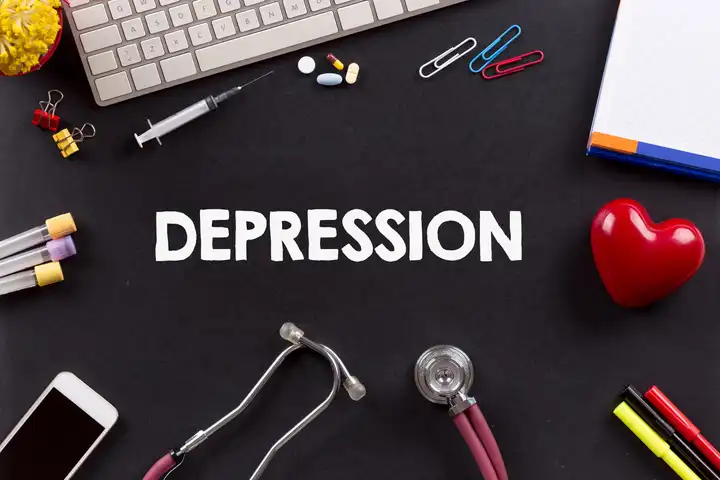Understanding Perimenopause Depression and Its Impact
Perimenopause depression is a serious and often misunderstood condition affecting millions of women globally. As hormonal fluctuations begin in the years leading up to menopause, many women find themselves battling mood disorders, especially depression, that feel unfamiliar and hard to explain. Unlike general depression, perimenopause depression is often triggered or worsened by changes in estrogen and progesterone levels, which directly influence neurotransmitters in the brain.
Perimenopause typically begins in a woman’s 40s, but for some, symptoms can start in the late 30s. It can last anywhere from a few months to over a decade. During this transition, women may experience not only physical changes but also emotional turmoil, often without understanding why. You can learn more about when this transition starts from this guide on the real onset of perimenopause.

Why Hormonal Shifts Trigger Perimenopause Depression
Hormones are powerful messengers in the body, and when they fluctuate, they can cause a cascade of effects. Estrogen plays a critical role in regulating mood by modulating neurotransmitters like serotonin and dopamine. When estrogen levels become inconsistent, these mood-regulating chemicals can become imbalanced, leading to:
- Increased sensitivity to stress: Everyday situations like running late, minor disagreements, or work deadlines that used to be manageable may now feel overwhelming. For example, something as small as your partner forgetting to take out the trash might trigger tears or anger.
- Mood swings and irritability: You might feel fine one moment and inexplicably agitated the next, even if nothing has changed externally.
- Sleep disturbances: Poor sleep caused by night sweats or anxiety can exacerbate feelings of depression and fatigue.
- Low libido and self-esteem: Hormonal dips can affect sexual desire and body image. Learn more about this in our article on understanding low libido in pre-menopause.
Recognizing the Symptoms of Perimenopause Depression
Perimenopause depression can feel like a thick fog that’s difficult to shake. It affects both emotional and physical well-being.
Emotional Symptoms of Perimenopause Depression
- Persistent sadness or feelings of hopelessness
- Anxiety or panic attacks
- Crying spells without clear triggers
- Lack of interest in hobbies or relationships
- Feeling disconnected from oneself or others
Physical Symptoms of Perimenopause Depression
- Fatigue even after a full night’s rest
- Unexplained aches and pains
- Changes in appetite or weight
- Insomnia or restless sleep
- Dizziness or light-headedness, which can also be linked to hormonal changes. Read more in this article on dizziness during perimenopause.
Many of these symptoms overlap with other perimenopausal experiences, making it important to understand the broader scope. Check out this science-backed guide to perimenopause symptoms

Who Is Most at Risk for Perimenopause Depression?
While any woman going through perimenopause can experience depression, certain factors increase the risk:
- A personal or family history of depression or anxiety
- High levels of stress at work or home
- Major life changes, such as divorce, children leaving home, or the death of a loved one
- Lack of a strong support system
For example, a woman juggling a demanding job, aging parents, and teenage children might find herself overwhelmed by responsibilities that previously felt manageable. Add hormonal fluctuations to the mix, and it’s easy to see why depression can take hold.
Differences Between Premenopause and Perimenopause Depression
Many women confuse premenopause with perimenopause, yet they are different stages. Premenopause refers to the entirety of a woman’s reproductive years before any menopausal changes begin. Perimenopause is the actual transition toward menopause when symptoms appear. Understanding the distinction can help you better identify what’s happening to your body. This comparison of premenopause and perimenopause offers clear insight.
Effective Treatments and Coping Strategies for Perimenopause Depression
While perimenopause depression can feel overwhelming, there are many tools and treatments available to manage it effectively.
Lifestyle Interventions for Perimenopause Depression
Exercise Regularly
Exercise boosts endorphins and improves mood. Aim for 30 minutes of moderate activity, such as walking, swimming, or yoga, at least five days a week.
Eat a Balanced Diet
Nourish your body with whole foods rich in omega-3 fatty acids, fiber, and complex carbohydrates. Avoid sugar and processed foods, which can lead to mood crashes.
Sleep Hygiene
Create a relaxing bedtime routine, avoid screens before bed, and keep your room cool and dark. Herbal teas like chamomile or valerian can also promote restful sleep.
Mindfulness and Therapy for Perimenopause Depression
Cognitive Behavioral Therapy (CBT)
CBT is a proven method to help restructure negative thought patterns. It’s particularly effective in addressing mood swings and anxiety.
Meditation and Journaling
Mindfulness practices can reduce stress and promote emotional stability. Journaling your thoughts each day can help you identify mood triggers and patterns.
Medical Treatments for Perimenopause Depression
Hormone Replacement Therapy (HRT)
For some women, HRT can significantly improve mood by stabilizing hormone levels. However, it’s important to discuss the risks and benefits with your doctor.
Antidepressants
SSRIs or SNRIs may be prescribed for moderate to severe depression. These can be helpful, especially when combined with therapy.
When to Seek Professional Help for Perimenopause Depression
If you notice persistent symptoms of depression lasting more than two weeks, or if they interfere with daily life, it’s time to reach out to a healthcare provider. Depression is a medical condition, not a weakness. Help is available, and recovery is possible.
Don’t hesitate to talk to your OB-GYN, therapist, or general practitioner. They can offer support, treatment options, and referrals.
Final Thoughts on Managing Perimenopause Depression
Perimenopause depression is real, and you’re not alone. Many women silently suffer through these years, assuming it’s “just stress” or “part of aging.” By educating yourself and seeking support, you can reclaim control and rediscover joy during this transition.
For trusted, expert-backed information on perimenopause and mental health, visit the North American Menopause Society.
You deserve to feel good in your body and mind—through every stage of life.

Frequently Asked Questions About Perimenopause Depression
Q1: Is perimenopause depression the same as regular depression? No. While the symptoms can be similar, perimenopause depression is specifically linked to hormonal fluctuations occurring during the transition to menopause. It often includes mood swings and increased sensitivity to stress that may not have been present before.
Q2: How long does perimenopause depression last? It varies from woman to woman. Some may experience symptoms for a few months, while others may deal with them for several years during the perimenopausal transition.
Q3: Can lifestyle changes really help with perimenopause depression? Yes. Regular exercise, a healthy diet, mindfulness practices, and good sleep hygiene can significantly reduce symptoms. These changes support both physical and emotional health.
Q4: Do I need to take medication for perimenopause depression? Not necessarily. Some women find relief through non-pharmaceutical options, while others benefit from antidepressants or hormone replacement therapy. A healthcare provider can help you determine the best approach for your situation.
Q5: When should I seek help from a doctor? If your symptoms are persistent, worsening, or interfere with your daily life, it’s important to consult a healthcare provider. You don’t have to go through this alone—help is available.







